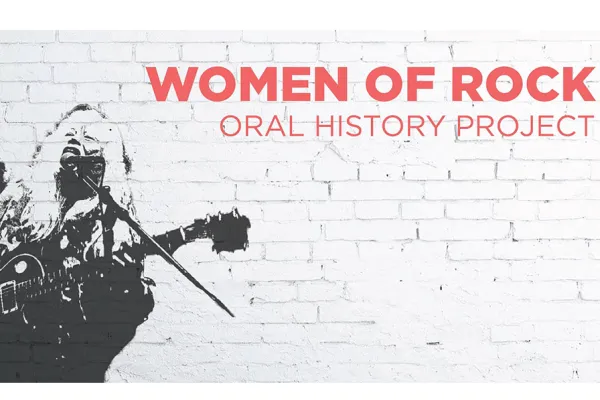Two Smithies Awarded Magic Grants for Novel Oral History Projects
Campus Life

Published June 24, 2016
Two Smith alumnae are recipients of this year’s Helen Gurley Brown Magic Grants, which provide funding for innovative projects by Smith Ada Comstock Scholars and recent program alumnae.
Tanya Pearson ’16 and Meridith Baier ’14 will use the grants to support groundbreaking oral history projects.
Established at Smith in 2011 by the late writer and editor Helen Gurley Brown, who led Cosmopolitan magazine for more than three decades, the Magic Grant program honors Brown’s commitment to educating women with diverse life experiences through the Ada Comstock Scholars Program for nontraditional-aged students.
Here are brief descriptions of the projects created by this year’s Magic Grant recipients, each of whom was awarded $25,000 to support her work:
Tanya Pearson AC ’16
“Pretend We’re Dead: An Oral History of Women in Rock”
Last year, Pearson created the Women of Rock Oral History Project for Smith’s Sophia Smith Collection—the first archival collection of its kind. Pearson’s Magic Grant will allow her to conduct at least 20 additional interviews for the collection and will also support a planned book based on the stories of pioneering women rock musicians. “The book will be the first popular oral history reader dedicated to women in rock ’n’ roll,” says Pearson, an American studies major and archives concentrator at Smith. “My main goal continues to be documenting women who have been left out of rock history.” Already this summer, Pearson has traveled to Los Angeles and Boston, where she was able to arrange an interview with Cherie Currie of the 1970s all-girl band The Runaways. Pearson has also scheduled interviews with Michelle Gonzales of Spitboy, folksinger Phranc, and Amanda Palmer and Kate Pierson of the B52s. Pearson—who is herself a musician—is dedicated to asking women rockers questions that “male journalists generally do not ask” in order to “fill in an important overlooked void in the historical narrative of rock ’n’ roll music.”
Meridith Baier AC ’14
“The Trafficked Women Project”
Baier aims to heighten public awareness of the “hidden in plain sight” lives of women who have experienced sex and labor trafficking in the United States. Working in collaboration with nonprofits, academic contacts and federal investigators, she will connect with trafficking survivors across the country who are willing to share their stories. Baier, who majored in American studies at Smith, plans to spend a year compiling interviews with these women, with hopes of eventually archiving them in Smith’s Sophia Smith Collection. Baier, who spent years in the performing arts before entering Smith as an Ada Comstock Scholar, will also produce a theater piece based on those narratives for use in schools, community centers and libraries. In her grant proposal, Baier cited a recent National Public Radio piece about a woman who was being treated in a New England hospital for something embedded in her side. The problem turned out to be a GPS device that her trafficker had forced her to implant. The woman “was a victim of human trafficking, or modern-day slavery,” Baier says. By offering stories of women who have experienced trafficking, Baier hopes her project will inspire people to take action to end those practices. “These narratives will not only reveal the personal challenges of trafficking victims,” Baier says, “they will highlight how and why racial and ethnic disparities affect the trafficking industry, enabling a deeper understanding of its influence on society as a whole.”
"Women of Rock" is one of two innovative oral history projects by Smith Ada Comstock Scholars awarded Magic Grants this year.